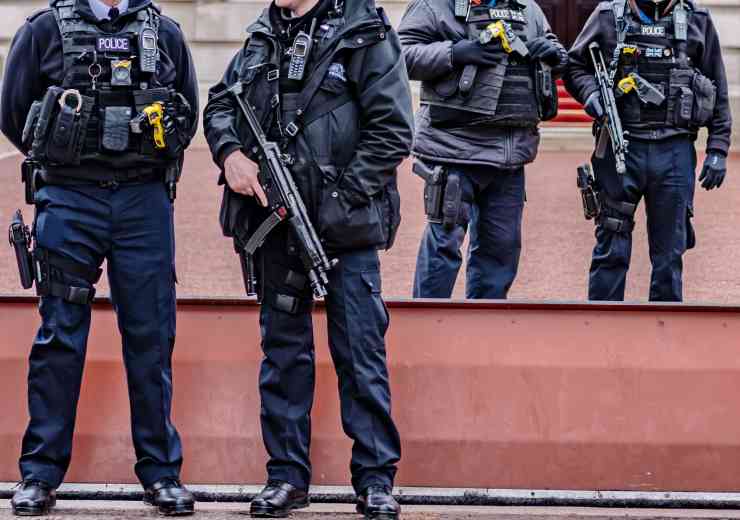
Is counter terrorism in Britain racist and/or Islamophobic?
Prepare and Pursue
The Prepare stream of CONTEST – which seeks to mitigate the impact of terrorist attacks by bringing them to an end as swiftly and effectively as possible, and by increasing capacity to recover in the aftermath (‘resilience’) – has, quite rightly, not been denounced as racist or Islamophobic. The majority of those arrested, charged, prosecuted, convicted and imprisoned in Britain for terrorism-related offences over the past few years, core Pursue objectives, have been young, male, non-white, British, Muslims. Since this is entirely consistent with those likely to be involved in the dominant terrorist threat, this CONTEST stream cannot credibly be considered discriminatory either.
Protect
Domestically, Protect is intended to reduce vulnerability to terrorism, particularly as far as national border security, transport systems, national infrastructure, and crowded places are concerned. Its most controversial feature concerns stop and search.
The Terrorism Act provides two principal street-related stop and search provisions. Section 43 requires reasonable suspicion of involvement in terrorism on the part of the police officer exercising this power. The other is provided by s. 47A (as amended). This authorises a senior police officer to designate, for up to 14 days, an area for random stops and searches, where there is reasonable suspicion, based upon intelligence, that a terrorist incident will occur there. Within such an area, uniformed officers can stop and search people and vehicles for evidence of involvement in terrorism without themselves having reasonable suspicion. But s. 47A also provides that, unless the officer has a description of a specific suspect, a person’s physical appearance cannot be used alone or in combination with any other factor as justification.
Exercise of both powers is governed by a code of practice. Amongst other things, this provides that reasonable suspicion cannot be based on generalizations or stereotypes of certain groups or categories of people deemed more likely to be involved in terrorism than others. It also requires officers to take care to avoid any form of racial or religious profiling when selecting people to search. They must also take ‘great care’ to ensure their judgment is ‘not based solely on ethnic background, perceived religion’ or any other characteristic protected by the Equality Act 2010.
No official figures appear to be available about the racial or religious impact of s. 47A which has been rarely used. There are no figures either for the religion of those stopped and searched under s. 43. However, since some 14 per cent of the population of England and Wales is non-white, the hit rate for s. 43 is 400 per million for non-whites and 40 per million for whites. One possible interpretation is that this is discriminatory and that the ‘reasonable suspicion’ requirement and the Code are being ignored. But official discrimination is not simply a matter of numbers. It critically depends upon context and justification. The s. 47A power is expressly location-specific. And while this is not a formal characteristic of s. 43, it may also be applied more in certain places than others. Therefore, while it cannot be ruled out that counterterrorist stops and searches on the streets are racially discriminatory, the lack of vital data renders this unproven.
The amended Schedule 7 of the Terrorism Act 2000, which is also subject to a code of practice, permits ‘examining officers’ designated by the Secretary of State (usually the police) to stop and question, detain and search individuals, and to examine and seize possessions and goods, with respect to anyone transiting through ports, airports, international rail stations, or the border area between Northern Ireland and the Republic of Ireland. The purpose is to determine whether those concerned appear to be, or have been, involved in terrorism. While ‘some reasoned basis, proportionality … and good faith’ are necessary, no specific suspicion about any given traveller is required.
Official statistics reveal several things about how these powers have been exercised. First, they are also very rarely used. An average of only 0.006 per cent of the 300 million or so transiting through British airports every year are subject to such examinations. And this has also been steadily declining year-on-year, from over 61,000 in 2012 to just over 10,000 in 2019. Ninety-four per cent last less than an hour and, of those examined, 35 per cent are white and 57 per cent non-white. Four per cent are detained, 75 per cent of whom are non-white. There is no information on the religion of those stopped and searched under Schedule 7.
Here again the overrepresentation of non-whites, particularly among those detained, might suggest racial discrimination. But it can also be explained in other terms. Since 92 per cent of Muslims in England and Wales are non-white, and all jihadis are Muslim, the majority of jihadis in Britain are likely to be non-white. This is also likely to be the case globally. On the basis of intelligence assessments, Schedule 7 is also likely to be used significantly more in relation to certain flights than others. For obvious reasons, these have not been officially identified. But it is, nevertheless, well-known that the countries most afflicted by jihadi terrorism are Nigeria, Syria, Iraq, Afghanistan, and Pakistan, all of which have almost entirely non-white populations. The majority of those visiting them is also likely to be non-white.
The manner in which stop and search powers are exercised is also critical. If most are of limited duration, applied infrequently to any given individual, and conducted respectfully, there can be little cause for complaint. Here again the lack of relevant systematic evidence makes it impossible to draw reliable conclusions about racial discrimination either way.
















